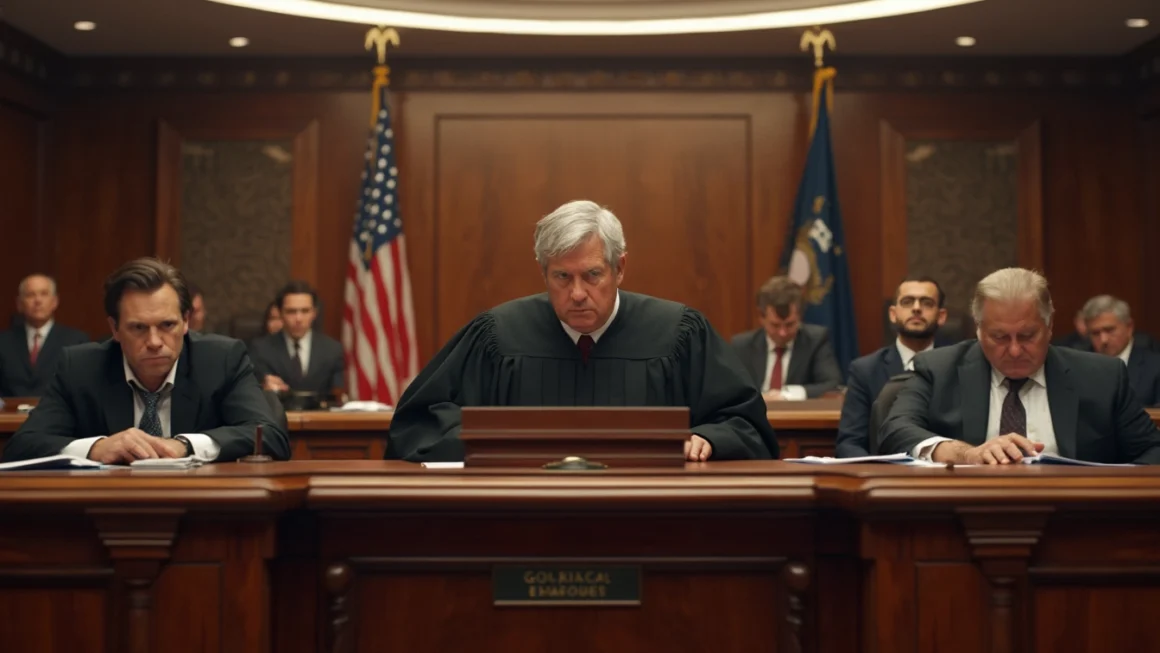Introduction: A Pivotal Legal Decision
Table of Contents
The legal landscape in Georgia has witnessed a significant change as a judge recently blocked election rules backed by pro-Trump Republicans. This decision is pivotal, setting a precedent amidst ongoing electoral discourse. Questions arise about the implications for upcoming elections and the larger political climate within Georgia and beyond.
Understanding the Election Rule Changes
The Proposed Amendments
Pro-Trump Republicans have championed a series of amendments intended to overhaul the election process in Georgia. These changes targeted various aspects of the electoral system, such as voter identification and mail-in voting procedures, which they claimed would enhance election integrity.
Rationale Behind the Amendments
Supporters of the proposed rules argued that these changes were necessary to restore voter confidence. Amidst claims of widespread voter fraud in previous elections, the new rules aimed to tighten security and prevent any potential discrepancies in future electoral activities.
The Judge’s Intervention
Reasons for the Legal Block
The judge’s decision to block these amendments was founded on several critical concerns. The ruling highlighted the potential discriminatory impact these changes could have, particularly on minority and underprivileged groups, potentially disenfranchising thousands of voters. Moreover, the court questioned the underlying assumptions of widespread voter fraud that the amendments purported to address.
Legal Justifications
The court emphasized the importance of maintaining equitable access to voting. In the absence of substantial evidence of fraud, the proposed amendments were viewed as unnecessarily restrictive. Upholding democratic principles, the judge’s ruling favored preserving the status quo to ensure fair and free elections for all citizens.
Implications for Georgia and Beyond
Impact on the Upcoming Elections
This ruling is poised to play a significant role in the political and electoral fabric of Georgia. With the upcoming elections on the horizon, the decision not only affects strategies and campaign plans but also influences voter turnout and participation rates. The blocked changes remove perceived barriers to voting, potentially leading to a more robust democratic process.
Broader Political Influence
The judge’s decision has caught the attention of political analysts and lawmakers across the nation. This case could serve as a bellwether for other states grappling with similar legislative proposals. It underscores a growing tension between efforts to enhance electoral security and the imperative to protect voting rights for all citizens.
Conclusion: Navigating the Future of Electoral Integrity
As Georgia continues to navigate its electoral landscape, this ruling marks a critical juncture in the ongoing debate over election integrity and voter accessibility. The decision reaffirms the judiciary’s role in balancing legislative initiatives with the fundamental rights of citizens. As other states watch closely, the ramifications of this legal block will undoubtedly resonate throughout the nation’s political discourse.
For those interested in how technology intersects with electoral processes, and how professionals are adapting to changing political climates, [visit this website](https://shubhamgohar.com) for more insights.




